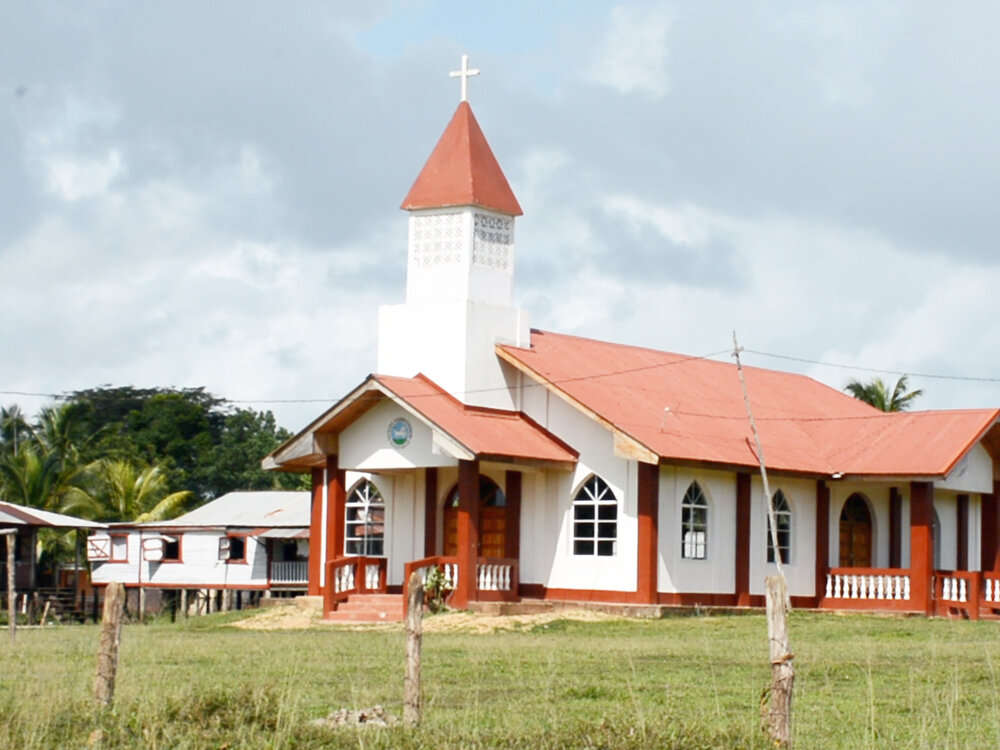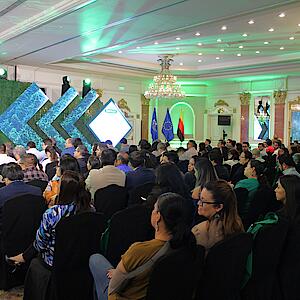CABEI contributes to improving the quality of life of more than 33,000 indigenous and Afro-descendant people of Nicaragua's Northern Caribbean region

The Infrastructure and Social Accompaniment Program provides for social accompaniment with a gender and intercultural approach among communities in the municipality of Puerto Cabezas.
Managua, March 23rd, 2022.- In order to reduce vulnerability and provide resilient infrastructure to natural disasters on Nicaragua's Northern Caribbean Coast, a US$5.0 million infrastructure and social support program is being developed in several indigenous and Afro-descendant communities in the municipality of Puerto Cabezas, financed by the Central American Bank for Economic Integration (CABEI).
The initiative is expected to benefit 33,528 men and women in the communities of the municipality of Puerto Cabezas affected in previous years by Hurricane Felix through the construction of eleven works, six of which have been completed in the communities of Awasyari, Kahka, Betania, Rahuawatla, Waynatingni and Sahsa.
Five are under construction, such as the Awastara community shelter, the construction of a health center in Ninayari, the construction of a community center and shelter in Dakra, as well as the construction of a shelter in Páhra.
"As CABEI, we are committed to backing and supporting the well-being of indigenous peoples who have suffered serious difficulties due to the effects of nature, which is why we are very pleased to learn of the 68% impact and progress made in the execution of this Program in the Nicaraguan Caribbean," said CABEI Executive President, Dr. Dante Mossi.
In the October-December 2021 period, the infrastructure works generated 74 direct jobs and 105 indirect jobs for a total of 179 new jobs at that date, and for a cumulative total of 780 direct temporary jobs since the beginning of the program. In addition, some 150 families from the beneficiary communities were involved.
Social accompaniment was carried out through 87 workshops in order to contribute to the strengthening of organizations with a gender and intercultural approach and of people's capacities to work together developing communication and community negotiation processes for the adequate management of the works, and management of the solution of their problems, guaranteeing sustainability.
Inter-institutional coordination between the different levels of government was also improved, as well as prior consultation and social auditing throughout the project.
These workshops were directed to the Monitoring Committees belonging to four communities of the Tawira Indigenous territory, with the participation of experts on social control issues in the investment stage, control and negotiation process and instruments of social control and intercultural health model.
In addition, the translation/reproduction of some 2,000 copies of brochures and posters into the Miskito dialect/language was financed for delivery to the families of the communities and to local and regional authorities to ensure the implementation of the safeguarding of indigenous peoples.
With the implementation of this program, the communities have been sensitized on gender equity issues. In this sense, women's participation has improved notably in community activities, such as those strictly related to construction work, thus following CABEI's cross-cutting strategic objective of gender equity.



![[Translate to English:] [Translate to English:]](/fileadmin/_processed_/e/3/csm_WhatsApp_Image_2024-04-18_at_2.12.23_PM__2__590ef43ade.jpeg)
